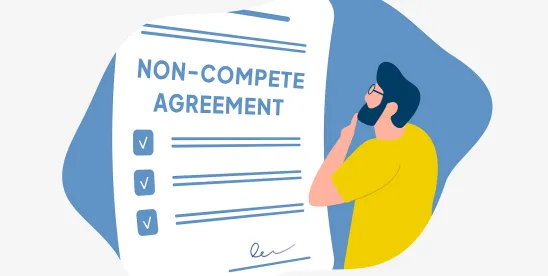When is the FTC’s rule effective?
The FTC’s non-compete ban is not in effect yet. It does not become effective until 120 days after the date of publication in the Federal Register of the final rule. The Federal Register is expected to publish the final rule next week, likely making the effective date around the beginning of September 2024.
Has litigation already been filed to challenge the non-compete ban?
The FTC’s non-compete ban is subject to at least two existing legal challenges seeking to have it invalidated. The U.S. Chamber of Commerce filed a Complaint for Declaratory Judgment and Injunctive Relief in U.S. District Court for the Eastern District of Texas, Tyler Division (Chamber of Commerce of the United States of America v. Federal Trade Commission, Case No. 6:24-cv-00148 (E.D. Tex. filed April 24, 2024); see also Ryan, LLC v. Federal Trade Commission, Case No. 3:24-cv-986 (N.D. Tex. filed April 23, 2024)). We don’t know whether these legal challenges will be successful, but we will provide updates when we know more.
What if the legal challenges are unsuccessful?
If the legal challenges are not successful and the rule goes into effect 120 days from next week (again, approximately early September 2024), here are steps that employers can take to get ready for the effective date:
- Review existing agreements to determine if they are now “unfair methods of competition”:
- One issue to analyze is whether an individual with a non-compete is a “worker” or a “senior executive.”
- If a “senior executive,” then a non-compete in place that pre-exists that effective date can still be enforced.
- If not a “senior executive,” then any non-compete clause that pre-dates the effective date for a worker is banned by the rule.
- If an independent contractor (or another non-employee worker), any non-compete clause is banned.
- Another issue to consider is whether non-solicitation, non-disclosure, or reimbursement provisions could be subject to the FTC ban. A provision that prevents a worker from seeking or accepting work in the U.S. with a different person or from operating a business in the U.S., then it is a “non-compete clause” that is subject to the rule. Depending on the wording and the factual circumstances, an obligation not to solicit customers could be considered a prohibited non-compete. For example, if an obligation not to solicit certain clients keeps a worker from accepting any job in the Permian Basin, it is arguable that the provision operates as a non-compete and violates the rule.
- One issue to analyze is whether an individual with a non-compete is a “worker” or a “senior executive.”
- Determine whether notice is required: After reviewing which non-compete clauses are not in compliance with the FTC rule, prepare a notice for workers who are currently subject to a non-compete clause banned by the rule. The FTC put out model language on the notification, which informs the worker that the non-compete clause is no longer valid as of the effective date.
- Update any form agreements: As part of the review of existing non-compete agreements, take the opportunity to update form agreements to remove now unenforceable non-compete (and possibly non-solicit) provisions. It is always a good idea to review and update the agreement generally to make sure that it reflects your current business and definition of confidential information.
- Enter into non-compete agreements with “senior executives”:
- The FTC ban permits non-compete agreements with “senior executives” that pre-exist the effective date to continue after the effective date. After the effective date, an employer may not require a senior executive to sign a new non-compete.
- The term “senior executive” refers to officers earning more than $151,164 with “policy-making authority.” As so defined, the FTC estimates that senior executives represent less than 0.75% of all workers.
- “Policy-making authority” means “final authority to make policy decisions that control significant aspects of a business entity or common enterprise and does not include authority limited to advising or exerting influence over such policy decisions or having final authority to make policy decisions for only a subsidiary of or affiliate of a common enterprise.”
- Energy company officers of companies that are part of a common enterprise or joint venture will want to analyze whether senior executives have final authority that qualifies for a non-compete under the rule.
- As always, any employer should make sure that a non-compete complies with existing state laws to assist in any enforcement efforts.
- Take note of violations before the effective date: The FTC’s noncompete ban does not apply where a cause of action related to a noncompete clause accrued before the effective date. So, if a worker is violating a noncompete that would otherwise be banned under the FTC rule, an employer may want to consider whether to initiate legal action against that worker before the effective date to fall under this exception.





 />i
/>i

